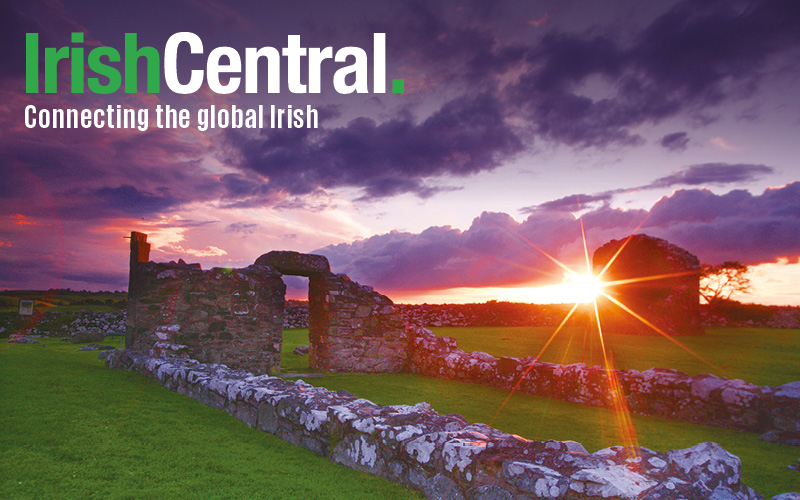As we all know, Christmas is just around the corner and of course next week’s column will all be about food for Santa and maybe I will give you my minced pies recipe, so this week we are going to look at other cultures and what they do for the holiday period.
Last week we looked at Hanukkah; this week, let’s do Kwanzaa.
Kwanzaa starts the day after Christmas, Boxing Day or St. Stephens’s day to us. A non-religious holiday, Kwanzaa celebrates African-American heritage, pride, community, family, and culture. The seven-day festival culminates on New Year's Day.
Inspired by the civil rights struggles of the 1960s and based on ancient African celebrations, Kwanzaa has become increasingly popular over the last decade. More than 20 million people celebrate in the United States, Canada, England, the Caribbean and Africa.
Kwanzaa's ancient roots lie in African first-fruit harvest celebrations, from which it takes its name. The word Kwanzaa is derived from the Swahili phrase "matunda ya kwanza," which means "first fruits."
Those roots are the foundation on which the modern holiday was built. Maulana Karenga, an African-American scholar and activist, conceived Kwanzaa in 1966 following the Watts riot. Currently, Karenga is chairman of the Department of Black Studies at California State University at Long Beach.
Kwanzaa celebrants spend their seven-day festivities preparing for the final feast, or "karumu," on December 31. This culminating spread of good food and fun includes African-inspired cuisine and ceremony.
The karumu room or venue might be decorated in the colors of black unity, red, black, and green. And the holiday table originally outlined by creator Maulana Karenga should include seven symbolic items: {I think most of these were stolen from the Jews}
A straw placemat (mkeka) {looks like a squashed Matzo bread}
A holder for seven candles (kinara), {come on, this even sounds like menorah}
The candles (mishumaa) {see above}
A variety of fruit (mazao) {hello, mazao couldn’t they have come up with a different name? fruitao maybe?}
An ear of corn for each child in the home (vibunzi), {this sounds just like a cheap gift like a dradle}
A unity cup (kikombe cha umoja)
And modest gifts (zawadi)
North African Lamb Kebabs
Ingredients
2 to 2 ½ pounds boneless leg or shoulder of lamb, cut into 1-inch cubes with some of the fat attached
1 ½ cups finely chopped onion
1 tablespoon lemon zest
¼ cup fresh lemon juice
¼ cup chopped fresh parsley leaves
¼ cup chopped fresh cilantro leaves
3 tablespoons chopped fresh mint leaves
2 teaspoons salt
1 teaspoon ground cumin
1 teaspoon paprika
1 teaspoon freshly ground black pepper
¼ cup olive oil
6 warm pita breads, for serving
Method
In a large bowl, combine the onion, lemon zest, lemon juice, parsley, cilantro, mint, salt, cumin, paprika, pepper, and olive oil. Add the lamb to the marinade and toss to coat. Cover with plastic wrap and refrigerate for 2 to 4 hours.
Soak 8 to 10 bamboo skewers in warm water for about 1 hour before assembling the kabobs.
Preheat the grill to high, and lightly oil the grill grates to prevent sticking. Thread the lamb onto the soaked skewers and place on the grill, turning to evenly cook, about 12 to 14 minutes.
Drizzle the pitas with sauce, then wrap the pita around the meat on the skewer, fold over and twist the skewer off the meat. Serve.
AND FINALLY…
It was announced today at a press conference that Christmas and Hanukkah will merge. An industry source said that the deal had been in the works for about 1300 years.
While details were not available at press time, it is believed that the overhead cost of having twelve days of Christmas and eight days of Hanukkah was becoming prohibitive for both sides. By combining forces, we're told, the world will be able to enjoy consistently high-quality service during the Fifteen Days of Chrismukah, as the new holiday is being called.
Massive layoffs are expected, with lords a-leaping and maids a-milking being the hardest hit. As part of the conditions of the agreement, the letters on the dreydl, currently in Hebrew, will be replaced by Latin, thus becoming unintelligible to a wider audience.
Also, instead of translating to "A great miracle happened there," the message on the dreydl will be the more generic "Miraculous stuff happens." In exchange, it is believed that Jews will be allowed to use Santa Claus and his vast merchandising resources for buying and delivering their gifts.
One of the sticking points holding up the agreement for at least three hundred years was the question of whether Jewish children could leave milk and cookies for Santa even after having eaten meat for dinner. A breakthrough came last year, when Oreos were finally declared to be Kosher. All sides appeared happy about this.
A spokesman for Christmas, Inc., declined to say whether a takeover of Kwanzaa might not be in the works as well. He merely pointed out that, were it not for the independent existence of Kwanzaa, the merger between Christmas and Chanukah might indeed be seen as an unfair cornering of the holiday market. Fortunately for all concerned, he said, Kwanzaa will help to maintain the competitive balance. He then closed the press conference by leading all present in a rousing rendition of "Oy Vey, All Ye Faithful."
Happy Chanuk-Kwanzaa-Solsti-Rama-Mas




Comments